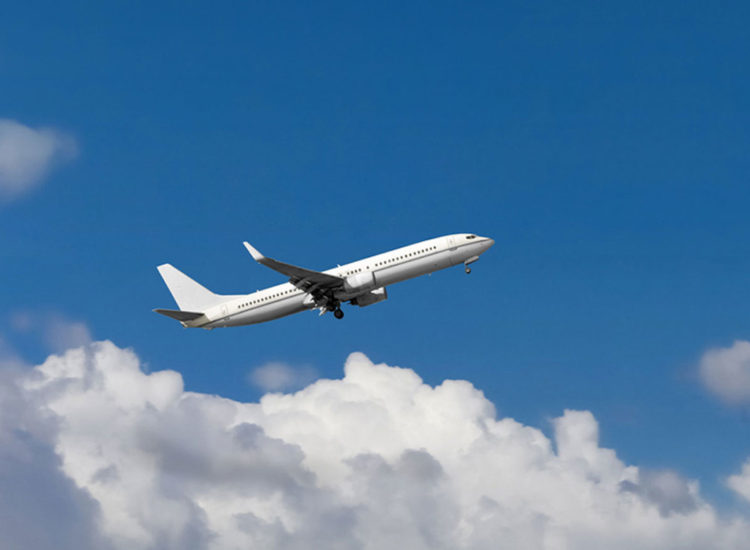
Australia is set to make a major change to its border rules as the next groups of people allowed to enter the country are revealed.
Fully vaccinated visa holders and international students will be allowed to enter Australia from next month without seeking an exemption, in one of the biggest changes to Australia‘s border policies since the beginning of the Covid-19 pandemic.
More than 200,000 international students, eligible skilled migrants and refugees are expected to return to Australia over December and January without a need for an exemption, as the nation moves to its final phase of the reopening plan.
In addition from December 1, fully vaccinated South Koreans and Japanese who hold a valid visa will be able to enter Australia without quarantine.
After double-dose vaccination rates ticked over 85 per cent for adults aged over 16 on Sunday, Prime Minister Scott Morrison formally announce the further easing of international border restrictions on Monday, putting Australia a step closer to pre-Covid normality.
Mr Morrison said the return of skilled workers and students would be the boost to Australia’s economy it had needed for almost two years.
“We said let’s get Australians home first, and that’s been occurring, and so from next month we will welcome back students and start looking to (bring back) the skilled workers that are needed to ensure we are able to take full advantage of the economic recovery that we are working to secure,” he said.
Home Affairs Minister Karen Andrews said the announcement was “yet another step forward” for Australia.
“Eligible visa holders include skilled workers and student cohorts, as well as refugees, humanitarians, temporary and provisional visa holders,” she said.
“In order to access the new provisions, travellers will need to be fully vaccinated, and they will need to present a negative PCR test taken within three days prior to
Mr Morrison announced a travel bubble would begin with Korea and Japan from December 1 as well.
“The National Plan enables governments to step back and Australians to step forward so they can look forward, and today we are taking … a very important step forward,” he said.
“In addition to the introduction of the travel bubble with Singapore that started (yesterday), from December 1, Australia will also welcome back fully vaccinated citizens from Japan and Korea.”
Ms Andrews said fully vaccinated citizens of Japan and South Korea who had a valid Australian visa should check to see if they were eligible for travel.
Those travelers will need to be fully quarantined and have returned a negative test within 72 hours to be eligible for quarantine-free travel.
“These changes are crucially important… as we go through our reopening phase,” she said.
Mr Morrison said the return of skilled workers and students to Australia was a “major milestone” in Australia’s pathway back to normality.
“It’ll mean a lot for the economies around the country who need those workers and want to see those students return,” he said.
“We’re looking forward to that occurring from December 1.”
Treasurer Josh Frydenberg said reopening the borders would be a boost to economic recovery, helping to address labour market shortages and allowing businesses to grow with confidence.
“We want to allow skilled migrants to come back, as well as international students sooner rather than later,” Mr Frydenberg told Sky News.
“It’s the natural next step following the announcements we’ve already made around citizens and permanent residents coming back without the need for quarantine, we’ve got the bubble with Singapore, the natural next step is skilled workers and international students.
“Both skilled workers and international students play an essential role in our economy. We know international students are worth $40 billion, and we know there are work skill shortages about there, and skilled workers can play a role.
“Whether it’s in hospitality, construction, mining or agriculture across the broader economy. There is a need to bring back those skilled workers and help build our economy back stronger as we recover from Covid-19.”
Eligible visa holders are people who hold the following visas:
Visa
Subclass 200 – Refugee visa
Subclass 201 – In-country Special Humanitarian visa
Subclass 202 – Global Special Humanitarian visa
Subclass 203 – Emergency Rescue visa
Subclass 204 – Woman at Risk visa
Subclass 300 – Prospective Marriage visa
Subclass 400 – Temporary Work (Short Stay Specialist) visa
Subclass 403 – Temporary Work (International Relations) visa (other streams, including Australian Agriculture Visa stream)
Subclass 407 – Training visa
Subclass 408 – Temporary Activity visa
Subclass 417 – Working Holiday visa
Subclass 449 – Humanitarian Stay (Temporary) visa
Subclass 457 – Temporary Work (Skilled) visa
Subclass 461 – New Zealand Citizen Family Relationship visa
Subclass 462 – Work and Holiday visa
Subclass 476 – Skilled – Recognised Graduate visa
Subclass 482 – Temporary Skill Shortage visa
Subclass 485 – Temporary Graduate visa
Subclass 489 – Skilled – Regional (Provisional) visa
Subclass 491 – Skilled Work Regional (Provisional) visa
Subclass 494 – Skilled Employer Sponsored Regional (Provisional) visa
Subclass 500 – Student visa
Subclass 580 – Student Guardian visa (closed to new applicants)
Subclass 590 – Student Guardian visa
Subclass 785 – Temporary Protection visa
Subclass 790 – Safe Haven Enterprise visa
Subclass 870 – Sponsored Parent (Temporary) visa
Subclass 988 – Maritime Crew visa




